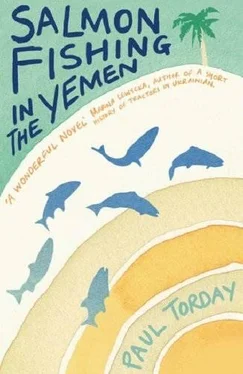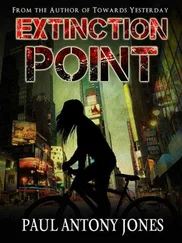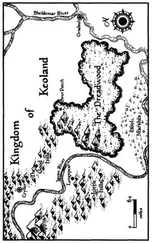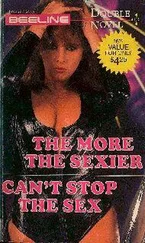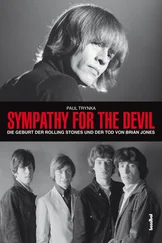And so I had my inspiration.
All of a sudden I knew there was a better way to spend the taxpayer’s money. I didn’t know the latest Treasury estimates of our various military operations but they were enormous and growing all the time. At the time of writing we were operating in fifteen different countries, five of them officially. Because the reasons for our overseas interventions are sometimes complex and politically quite sophisticated, the sad fact is that sometimes the general public does not always appreciate the value of these operations. Who can blame them? Some of our involvements overseas have been going on an awfully long time.
But, I reflected, there are other institutions which we also traditionally spend money on without making much effort to understand the value of the investment. For example, there is the BBC World Service. What’s that for? It’s protected by charter and much as I would like to have taken an axe to it during the earlier years of our government, I knew I could not touch it. I also had to admit that a lot of people listened to it and, I speculated, does that not demonstrate an enormous thirst for information about the European and in particular the British way of life? I have never listened to the World Service myself. I imagined from looking at some of the programme lists that it was mostly repeats of Farming Today or recent speeches in the European Parliament or magazine programmes about tribal rituals in the Congo, and this made me realise that there were audiences in the Arab world and beyond who really must be desperate for a glimpse of a world beyond their own. So, what would they do if they had access to a really zippy British-owned and-controlled TV channel? The idea I developed that winter was to set up a TV station called, let’s say for argument’s sake, Voice of Britain. From the outset I was enthralled by the possibilities and I determined to produce a pilot of a show, in order to take it to the boss. We scripted the show with Noel Edmonds in mind as presenter, but his agent wasn’t keen on the idea. In the end we used a lookalike presenter from al-Jazeera for the pilot. The other problem was that the contestants spoke either Farsi, Pashto, Arabic or Urdu and we needed to put the show out in English, so simultaneous translators were needed. But on the whole I think it worked extremely well.
Script of TV pilot for Prizes for the People
Episode One (Duration 30 minutes), Prizes for the People
[ Title sequence]
[ 00.30 ]
[ Theme music ]
[ Presenter welcome and introduction ]
[ 00.30 ]
[ Presenter is standing in the ruins of a village .]
Muhammad Jaballah (in vision):
‘Good evening. I’m Muhammad Jaballah, and I’m standing here in the middle of the village of Dugan in the Northern Frontier District of Pakistan. The villagers of Dugan have been going through a tough time recently, as their government battles for the control of the area with the Taliban and al-Qaeda. But now things are about to change for them. They are going to join me in my new show, a show that will test the wits of contestants from all over the Middle East and Asia. And, if they get the right answers, their lives will undergo the most incredible transformation. They will win prizes beyond their wildest dreams. Welcome to our great new show, [ Theme music ] Prizes for the People .’
’
[ Still photograph of a Pakistani male in his early twenties .]
Male voice⁄over:
‘Farrukh from Dugan will be our first contestant. But for now let’s learn more about Dugan, the wonderful village which Farrukh comes from.’
[ Presenter location link]
[ 00.60 ]
Dugan, Northern Frontier District, Pakistan
Presenter walks through the ruins of drystone-walled houses, surrounded by the remains of an almond grove in blossom. Blackened stumps indicate a recent fire. Presenter stops in front of the remains of one house distinguished by a bomb crater in front of it.
Muhammad Jaballah (in vision):
‘This is Dugan, once a thriving village in the north of Pakistan, set amidst beautiful almond groves with snowcapped mountains behind. A lovely place, and in a moment we’ll meet the lovely people who live here. Sadly, as you can see, a Tomahawk cruise missile landed here a few months ago and did some damage. The house behind me was Farrukh’s and unfortunately the explosion knocked down most of the building, and some of Farrukh’s family were fatalities. But, hey, that’s why we’re here-to try and bring a smile back onto the faces of Farrukh and his friends.’
[ Presenter studio]
[ 00.40 ]
Muhammad Jaballah is now seen on set, in the studio. He is wearing black robes edged with gold. In the background are cutout images of sand dunes. An inflated plastic camel pokes its head up above the dunes while Muhammad speaks.
Muhammad Jaballah (in vision):
‘Tonight Farrukh and his friends from his village, Imran and Hassan, will compete in the very first show of Prizes for the People . I am thrilled to have this opportunity to change their lives. This is more than just a quiz show we’re going to do good.’
The camera pans across to two chairs facing each other centre stage at the front of the set.
[ Theme music ]
The first contestant, Farrukh, enters from stage left and walks across to sit opposite Muhammad.
[ Applause ]
Male v⁄o:
‘And now, a big welcome for…Farrukh from Dugan!’
[ Presenter studio]
[ 1.00 ]
Muhammad Jaballah:
‘Tell us about yourself, Farrukh. Where do you come from?’
Contestant (camera pans across):
‘I come from Dugan, in the Tribal Areas.’
Muhammad Jaballah (in vision):
‘Farrukh, in a few moments we are going to ask you a question. Not very hard, but you have to get it right. But first tell us about Dugan.’
Contestant (in shot with presenter):
‘Dugan is a very beautiful village but it has been a little bit exploded. The generator is blown up and the well is filled with sand and stone, and some of the houses have fallen down.’
Muhammad Jaballah (in vision):
‘Farrukh, that’s very sad, and I hope that today you will be able to win some prizes. So now let’s see if you can answer the first question?’
[ Theme music ]
[Fade to black, then back in vision]
[ Presenter studio]
[ 1.20 ]
[ Dramatic background music ]
Muhammad Jaballah (in shot with contestant):
‘Okay, Farrukh, here’s the first question: what animal can cross the desert for ten days without any food or water?’
Contestant (close up):
‘It sounds like a…’
Muhammad Jaballah (close up):
‘Don’t guess now, Farrukh. Don’t say the first thing that conies into your head, otherwise you’ll be on your way back to Dugan with nothing, and we wouldn’t like that now, would we?’
[ Audience shots of ‘No!’ and ‘Way to go, Farrukh! ’]
Contestant (in shot with presenter):
‘It is a…’
Muhammad Jaballah (close up):
‘Before you answer, Farrukh, have a look at these choices and tell me which of these three possible answers is the correct one.’
[ Multiple-choice question]
[ 00.30 ]
Male v⁄o:
‘Okay, Farrukh, if you can answer correctly which of these three animals can cross the desert for ten days without food or water, then you will win the first of tonight’s major prizes:
Читать дальше
